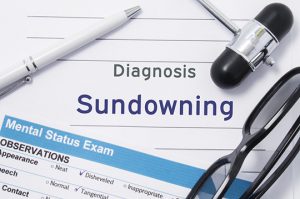You’ve graduated from nursing school, registered with your State Board of Nursing, paid your fees, and scheduled your NCLEX test day. That’s a lot!
You’re reading one of our “Nursing Career Guide” articles. Need to practice for your upcoming exam? Have a look at our free NCLEX practice questions -- no registration required! ✨
Now it’s time to settle down and prepare for the exam. Before you jump in, think about how you can develop a strategy that matches your individual situation. Your NCLEX Study Plan will depend on several factors:
- How long before your test appointment? Most candidates need 1-2 months of dedicated study to cover the Client Needs, take practice tests, and review material in areas that need more focus. Whatever your timeline, you can adjust your study plan accordingly.
- What else is going on in your life? This is a good place to start as you develop your NCLEX Study Plan. The world doesn’t stop because you have an upcoming exam. You may have a job, a family, or obligations that prevent full-time study. Finding time in a busy schedule may not be easy, but it’s important for a successful outcome.
- How much time can you commit to studying each day? It’s crucial to space out your studies, so that you’re not cramming the week before your NCLEX. Cramming works against you: It decreases your concentration, reduces data retention, and increases stress. Everyone has a different capacity for study, but 3-6 hours a day is ideal.
- What is your learning style? There are seven general learning styles: visual, auditory, verbal, physical, logical, social, and solitary. About 65% of us are visual learners, but we also use other styles that help us learn effectively. By now, you’re familiar with what has worked best for you, so make the most of it as you study.
Before designing your NCLEX Study Plan, gather these resources
- 1
NCSBN Test Plan
This may be your #1 resource for learning what the exam will cover. The National Council of State Boards of Nursing (NCSBN) oversees the NCLEX for both RN and PN candidates in the United States and Canada.
Download the Test Plan for your NCLEX and read it carefully. It describes the content for each of the four Client Needs and lists examples of items you may be asked about. Every question on the NCLEX must relate to the Test Plan.
- 2
Nurse Plus Premium
With over 1,300 practice questions that cover the Client Needs and their subcategories, Nurse Plus Premium will help you learn while you become familiar with the test methodology. The NCLEX Test Genie app lets you study anywhere.
Review by category, focus on the challenging Select-All-That-Apply (SATA) test items, and take the NCLEX simulator exam. Each time you take a test, the questions and their options are shuffled, so it’s never the same. Our subscribers love Nurse Plus—we think you will, too.
- 3
Textbooks and Class Notes
There is so much material to learn in nursing school and no way to remember it all. NCLEX is based on current knowledge and practice, so you already have most of this information at hand.
As you review, there will be topics you don’t know. That’s expected. Use your books and notes to see what was presented; sometimes you’ll recall the lectures, and other times you’ll need to find it for yourself.
- 4
Resources that match your learning style
It’s smart to have a supply of techniques that you know work for you. They can be as simple as paper and pen to rewrite notes or make diagrams; NCLEX review books with questions; or a solid YouTube channel with presentations.
One of the best ways to practice is using flash cards. An old-fashioned method, but proven to increase retention. Make your own with index cards; write one for each item or fact you want to remember. Flash cards are great for things like lab values, medications, or other rote memory topics.
Having all of these on hand before you start will save time and frustration. You’ll know what the NCLEX will cover, how the test will proceed, and you’ll have your study tools at hand.
- 5
Calendar
You’ll be scheduling something for each day, so download or make a calendar for the amount of time you intend to prepare. Whatever you choose, be sure it’s easy to access. A hardcopy is also good to keep by your study space.
Time to develop Your Personal NCLEX Study Plan!
Find a quiet spot and allow yourself at least an hour to make your NCLEX Study Plan. This is your roadmap to Test Day…and into your career!
- 1
Decide how to study the content.
How do you want to divide the material that needs to be covered? Logically, you’ll choose one of the Client Needs categories or subcategories at a time:
NCLEX-RN
Safe and Effective Care Environment
- Management of Care
- Safety and Infection Control
Health Promotion and Maintenance
Psychosocial Integrity
Physiological Integrity
- Basic Care and Comfort
- Pharmacological and Parenteral Therapies
- Reduction of Risk Potential
- Physiological Adaptation
NCLEX-PN
Safe and Effective Care Environment
- Coordinated Care
- Safety and Infection Control
Health Promotion and Maintenance
Psychosocial Integrity
Physiological Integrity
- Basic Care and Comfort
- Pharmacological Therapies
- Reduction of Risk Potential
- Physiological Adaptation
Is there a category or subcategory that you’re familiar with? Perhaps you have previous knowledge or experience in that area, or it simply makes sense to you. It’s up to you, depending on your style and preference:
- Study it first, to free up time for more challenging topics.
- Save it till last, when you’re ready to ramp down before your NCLEX.
Either way, assign yourself blocks of time for the topic you choose. Here’s a sample schedule for a candidate who decides to start with the Management of Care category, which is 17-23% of the NCLEX.
Week 1: Safe & Effective Care Environment—Management of Care
| Sunday | Monday | Tuesday | Wednesday | Thursday | Friday | Saturday |
| Day off | 6-8am: Review NSCBN Test Plan | 6-8am: Study | 6-8am: Study | 6-8am: Make flash cards and review | 6-8am: Study | 7-9am: Evaluate knowledge from week |
| 7-9pm: Nurse Plus practice test | 7-9pm: Nurse Plus practice test | 7-9pm: Nurse Plus practice test | 7-9pm: Review NSCBN Test Plan | 7-9pm: Nurse Plus practice test | 3-5pm: Review and reschedule |
| Sunday | Day_off | |
| Monday | 6-8am: Review NSCBN Test Plan | 7-9pm: Nurse Plus practice test |
| Tuesday | 6-8am: Study | 7-9pm: Nurse Plus practice test |
| Wednesday | 6-8am: Study | 7-9pm: Nurse Plus practice test |
| Thursday | 6-8am: Make flash cards and review | 7-9pm: Review NSCBN Test Plan |
| Friday | 6-8am: Study | 7-9pm: Nurse Plus practice test |
| Saturday | 7-9am: Evaluate knowledge from week | 3-5pm: Review and reschedule |
The candidate does several wise things with this schedule:
- They give themselves a day off to relax and enjoy activities with others.
- They begin the week by examining the NCSBN Test Plan, to see what content to study and the topics that could be covered on the exam.
- They split the day into two sessions, utilizing one of the best learning tools, the spacing effect. It’s the exact opposite of cramming, leading to long-term memory retention.
- They use Nurse Plus practice tests to review and to find items that they need to learn more about. At the same time, they’re becoming familiar with the testing mode.
- They take a day near the end of the week to prepare for future study in Management of Care by making flash cards and returning to the NCSBN Test Plan to see what’s left to cover.
- They stop and evaluate on the last day of the week: Did they learn everything they wanted? Did the practice tests go well? Are there still some learning gaps? Should more time be scheduled before NCLEX to study this category? The week ends with either confidence about the topic, or a definite plan to return to it later.
Want another example of a Study Calendar? This one focuses on the challenging subcategory of Physiological Integrity, Pharmacological and Parenteral Therapies (Pharmacological Therapies for PN candidates).
Week 1: Physiological Integrity: Pharmacological Therapies
| Sunday | Monday | Tuesday | Wednesday | Thursday | Friday | Saturday |
| Day off | 6-8am: Review NSCBN Test Plan | 6-8am: Study Antibiotics | 6-8am: Study Cardiac Drugs | 6-8am: Nurse Plus practice test | 6-8am:Study Opioids & Analgesics | 7-9am: Evaluate knowledge from week |
| 7-9pm: Nurse Plus practice test | 7-9pm: Begin to make and review flash cards | 7-9pm: Nurse Plus practice test | 7-9pm: Study Psychotropics | 7-9pm: Nurse Plus practice test | 3-5pm: Review NCSBN and reschedule |
| Sunday | Day_off | |
| Monday | 6-8am: Review NSCBN Test Plan | 7-9pm: Nurse Plus practice test |
| Tuesday | 6-8am: Study Antibiotics | 7-9pm: Begin to make and review flash cards |
| Wednesday | 6-8am: Study Cardiac Drugs | 7-9pm: Nurse Plus practice test |
| Thursday | 6-8am: Nurse Plus practice test | 7-9 pm: Study Psychotropics |
| Friday | 6-8am: Study Opioids & Analgesics | 7-9pm: Nurse Plus practice test |
| Saturday | 7-9am: Evaluate knowledge from week | 3-5pm: Review NCSBN and reschedule |
In this case, the candidate chooses to start on a subcategory that is sprinkled throughout the entire examination. RN candidates can expect 12-18% of test items to be about pharmacology; PN candidates will have 10-16%.
Some things are the same: The day off, the time slots, and a combination of study methods. What’s different here?
- They begin to make flash cards on the second day of study. Medications must be memorized, so it’s smart to start right away.
- They study drugs by category or classification. This will help recall groups, their actions, and their side effects. There are many ways to study medications: diagnosis, body system, drug action, intravenous fluids, etc. Depending on how much time is allotted for any difficult category, another day or week can be scheduled.
- They use Nurse Plus practice tests to make flash cards for unfamiliar medications and to perform dosage calculations. Flash cards can also be made for dosage formulas.
- 2
Content AND Questions: Why practice tests are essential
As your study calendar moves forward, and you take more practice tests, you’ll begin to see how the content in each of the Client Needs is presented as part of the NCLEX. You’re expected to memorize facts, such as normal lab values and vital signs, but those will usually be included in a question that requires some analysis.
The test items are written with the Bloom’s taxonomy model. NCSBN states, “Since the practice of nursing requires application of knowledge, skills and abilities, the majority of items are written at the application or higher levels of cognitive ability, which requires more complex thought processing.”
Your practice tests will ask about the same content in several ways, to get you used to how questions may look on your NCLEX. Each test item will take a different approach or ask about a specific point of the content.
An example is diabetic ketoacidosis (DKA), a serious complication of type 1 diabetes. Here are three different questions about DKA, with the correct response(s) in green:
An unresponsive patient with diabetes is brought to the emergency department with slow, deep respirations. Additional findings include: blood glucose 450 mg/dL (24.9 mmol/L), arterial pH 7.2, and urinalysis showing presence of ketones and glucose. Which of the following statements best describes the underlying cause of this patient’s presentation?
- Lack of insulin causes increased counter-regulatory hormones and ketone release
- Hypoglycemia causes release of glucagon resulting in glycogenolysis and hyperglycemia
- Nocturnal elevation of growth hormone results in hyperglycemia in the morning
- Hyperglycemia causes oxidative stress, renal dysfunction, and acidosis
A 22-year old female with a history of type 1 diabetes is brought to the emergency department. Which respiratory pattern indicates diabetic ketoacidosis (DKA)?
- Shallow respirations with irregular long expirations
- Regular respiratory pattern, but frequent pauses
- Short inspirations and expirations
- Deep, rapid respiration rate with long exhales
A 20-year-old college student with a known diagnosis of type 1 diabetes is brought to the Emergency Department by his roommate. The roommate states that the client “seems sick and has been acting strange.” Which signs and symptoms indicate possible ketoacidosis?
- Kussmaul breathing
- lack of thirst
- confusion
- fruity-smelling breath
- abdominal pain
- anuria
All three questions require knowledge of type 1 diabetes: the disease process, pathophysiology, and clinical manifestations of complications. Sometimes Nurse Plus subscribers comment that questions are repeated; it’s usually that the topic is just being presented in a different way.
- 3
Make time for yourself.
You’ve been on this path to becoming a licensed nurse for a long time. Years of nursing school and weeks at different clinical settings, all the while juggling multiple responsibilities in your personal life.
Now that you’re in the final stretch of becoming a licensed nurse, it can be tempting to forge ahead to the finish line. But you want to be healthy, relaxed, and confident when you sit for your NCLEX. Self-care will be essential in your nursing career, too, to prevent burnout.
Obviously, eat well and get plenty of sleep. That’s what you’ll tell your future clients! Make time for family and friends, even if it’s a quick get-together. Exercise and enjoy the outdoors. Do something you love: Cooking, reading, gardening, playing a sport. Something that takes your mind away from your studies for awhile actually improves your ability to learn and retain information; it reduces stress and enhances the quality of your life.
- 4
Final Week of your NCLEX Study Plan: It’s just a review!
However long you give yourself to prepare for your examination, try to schedule a full week for reviews and practice tests. If you’ve stuck to your calendar, all content should be covered. Don’t be too hard on yourself or think you must know absolutely everything. Your fundamental knowledge and ability to apply it will serve you well.
Here is a sample schedule for the final week. Keeping the same hours, but shifting to simply going over things a last time. What needs to be reviewed? That will be up to you.
You may want to concentrate on taking the NCLEX simulator test, to be confident in answering questions in 60-90 seconds. Perhaps you want to return to the SATA test items. Or it might be the time to back to Week 1. At this stage, only you know how much more you can handle.
Week 5: Final Reviews (TBD=To Be Determined)
| Sunday | Monday | Tuesday | Wednesday | Thursday | Friday | Saturday |
| Day off | 6-8am: Review all NSCBN Categories | 6-8am: Review all flash cards | 6-8am: Study category TBD | 6-8am: Study category TBD | 6-8am:Review all flash cards | 7-9am: Final review as needed. |
| 7-9pm: Nurse Plus category TBD | 7-9pm: Nurse Plus NCLEX simulator | 7-9pm: Nurse Plus NCLEX simulator | 7-9 pm: Nurse Plus category TBD | 7-9pm: Nurse Plus or Study TBD | 3-5pm: Prepare supplies for NCLEX Day |
| Sunday | Day_off | |
| Monday | 6-8am: Review all NSCBN Categories | 7-9pm: Nurse Plus category TBD |
| Tuesday | 6-8am: Review all flash cards | 7-9pm: Nurse Plus NCLEX simulator |
| Wednesday | 6-8am: Study category TBD | 7-9pm: Nurse Plus NCLEX simulator |
| Thursday | 6-8am: Study category TBD | 7-9 pm: Nurse Plus category TBD |
| Friday | 6-8am: Review all flash cards | 7-9pm: Nurse Plus or Study TBD |
| Saturday | 7-9am: Final review as needed. | 3-5pm: Prepare supplies for NCLEX Day |
- 5
Don’t study the day before your NCLEX.
You made and followed a solid NCLEX Study Plan. You studied regularly, used the available resources, evaluated your progress along the way, and adjusted your schedule accordingly. There’s nothing left to do except enjoy your last day as a “candidate” and get a good night’s sleep.
Research has consistently shown that taking the time to sleep before an exam will benefit your test score more than 4-5 hours of staying awake to stare at a computer screen and worry about what you may have missed. Just be sure to set your alarm!
The NCLEX question pool has thousands and thousands of questions. There’s no way to know what you’ll be asked. And there certainly might be some things you’ve never heard of. Make your best guess and go on to the next test item. You’re probably prepared for the next question!
 By
By 



